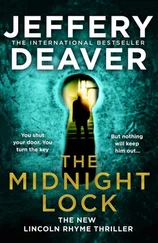He scanned the ground floor. Beyond the living room was a parlor, from which a stairway led upstairs. Past that room was a dining room and, in the back, a kitchen, whose door, reinforced and windowless, led onto the alleyway. Another door in the kitchen led to the cellar, an unusual feature in much of California. The few pieces of furniture were functional and mismatched. The walls were the color of old bone, curtains sun-bleached to inadvertent tie-dye patterns.
He took his time examining every room on this floor and on the second and third stories. No sign of current residents, but he did find bed linens neatly folded on a mattress on the second floor.
Last, the basement.
He clicked on his tactical halogen flashlight, with its piercing beam, and descended to see that the room was largely empty. A few old cans of paint, a broken table. At the far end was a coal bin, in which a small pile of glistening black lumps sat. Shaw smiled to himself.
Ever the survivalist, weren’t you, Ashton?
As he stared into the murk, he noted three wires dangling from the rafters. One, near the stairs, ended in a fixture and a small bulb. The wires in the middle and far end had been cut and the ends were wrapped with electrician’s tape.
Shaw knew why the two had been operated on: to keep someone from getting a good view of the end of the cellar.
Shining the beam over the back wall, he stepped close.
Got it, Ash.
As with the rest of the basement, this wall was constructed of four-by-eight plywood sheets nailed to studs, floor to ceiling, painted flat black. But an examination of the seams of one panel revealed a difference. It was a hidden door, opening onto a secure room. He took the locking-blade knife from his pocket and flicked it open. After scanning the surface a moment longer, he located a slit near the bottom. He pushed the blade inside and heard a click. The door sprung outward an inch. Replacing the knife and drawing his gun, he crouched, shining the beam inside, holding the flashlight high and to the left to draw fire, if an enemy were present and armed.
He reached inside and felt for tripwires. None.
He slowly drew the door toward him with his foot.
It had moved no more than eighteen inches when the bomb exploded with a searing flash and a stunning roar and a piece of shrapnel took him in the chest.
The risk in detonations is usually not death.
Most victims of an IED are blinded, deafened and/or mutilated. Modern bomb materials move at more than thirty thousand feet per second; the shock wave could travel from sea level to the top of Mount Everest in the time it takes to clear your throat.
Shaw lay on the floor, unable to see, unable to hear, coughing, in pain. He touched the spot where the shrapnel had slammed into him. Sore. But no broken-skin wound. For some reason the skin hadn’t broken. He did a fast inventory of the rest of his body. His arms, hands and legs still functioned.
Now: find his weapon. A bomb is often a prelude to an attack.
He could see nothing but, on his knees, he patted the damp concrete in a circular pattern until he located the gun.
Squinting, but still seeing nothing. You can’t will your vision to work.
No time for panic, no time for thinking of the consequences to his lifestyle if he’d been permanently blinded or deafened. Rock climbing, motorbiking, traveling the country — all endangered, but not something to worry about right now.
But how could he tell where the assault was coming from? In a crouch he moved to where he thought the coal bin was. It would at least provide some cover. He tried to listen but all he could hear was a tinnitus-like ringing in his ears.
After five desperate minutes he was aware of a faint glow coalescing at the far end of the cellar. Light from the kitchen above.
So his vision wasn’t gone completely. He’d been temporarily blinded by the brilliance of the explosion. Finally he could make out the beam of his tac light. It was ten feet away. He collected it and shone the bright light throughout the basement and into the room on the other side of the hidden door.
No attackers.
He holstered his weapon and snapped his fingers beside each ear. His hearing was returning too.
Then he assessed.
What had just happened?
If the bomber had wanted an intruder dead, that could’ve easily been arranged. Shaw shone his light on the frame of the hidden door and found the smoking device, gray metal. It was a large flash-bang — designed with combustible materials that, when detonated, emitted blinding light and a stunning sound but didn’t fling deadly projectiles; its purpose was to serve as a warning.
He looked carefully to see why he’d missed it. Well, interesting. The device was a projectile. It had been launched from a shelf near the hidden door, rigged to explode after a half second or so. This is what had hit him in the chest. The trigger would be a motion or proximity detector. Shaw had never heard of a mechanism like this.
He carefully scanned the room for more traps. He found none.
Who had set it? His father and his colleagues had likely made the secret room, but they probably would not have left the grenade. Ashton Shaw never worked with explosives. Possessing them without a license was illegal, and, for all his father’s serious devotion to survivalism and distrust of authority, he didn’t break the law.
Never give the authorities that kind of control over you.
Then Shaw confirmed his father could not have created the trap. When he examined the device more closely under the searing white beam, he noted that it was military-issue and bore a date stamp of last year.
Shaw flicked on an overhead light and tucked his flashlight away. He saw a battered utility table in the center of the twenty-by-twenty space, an old wooden chair, shelves that were largely bare but held some papers and clothes. Other stacks of documents sat against the wall. A large olive-drab duffel bag was in the corner.
On the table were scores of papers.
Was this it? The hidden treasure that others — his father among them — had died for?
He walked around the table, so he was facing the doorway to the secret room, and bent forward to find out.
Colter Shaw was here because of a discovery he’d made on his family’s Compound in the soaring peaks of eastern California.
There, on high and austere Echo Ridge, where his father had died, Shaw had found a letter the man had written and hidden years ago.
A letter that would change Shaw’s life.
Ashton began the missive by saying that over his years as a professor and amateur historian and political scientist, he’d come to distrust the power of large corporations, institutions, politicians and wealthy individuals “who thrive in the netherworld between legality and illegality, democracy and dictatorship.” He formed a circle of friends and fellow professors to take on and expose their corruption.
The company that they first set their sights on was BlackBridge Corporate Solutions, a firm known for its work in the shadowy field of corporate espionage. The outfit was behind many questionable practices, but the one that Ashton and his colleagues found the most reprehensible was their “Urban Improvement Plan,” or “UIP.” On the surface it appeared to help developers locate real estate. But BlackBridge took the brokerage role one step further. Working with local gangs, BlackBridge operatives flooded targeted neighborhoods with free and cheap opioids, fentanyl and meth. Addiction soared. As the neighborhoods became unlivable, developers swooped in to buy them up for next to nothing.
This same tactic won results for political clients: PACs, lobbyists and candidates themselves. The infestation of illegal drugs would cause a shift in population as residents moved out, affecting congressional districting. The UIP was, in effect, gerrymandering by narcotics.
Читать дальше
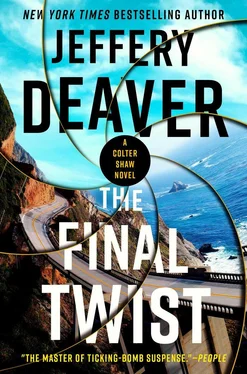
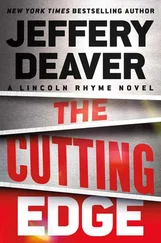

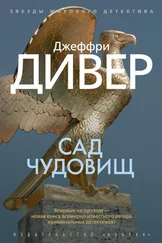

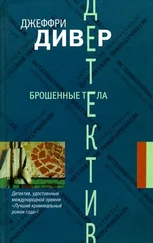

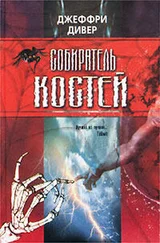
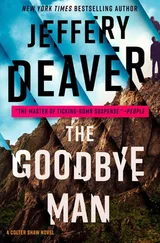
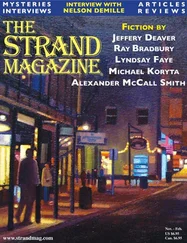
![Джеффри Дивер - Where the Evidence Lies [A Lincoln Rhyme Short Story]](/books/403782/dzheffri-diver-where-the-evidence-lies-a-lincoln-r-thumb.webp)

